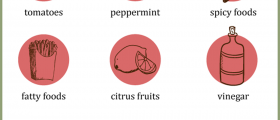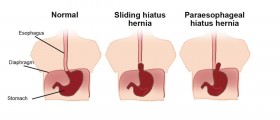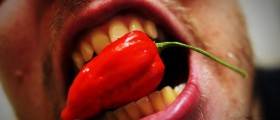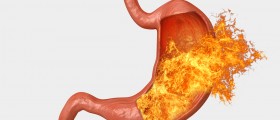Difficult swallowing when first start eating
Loading...
Hi, guest.
Difficulty in swallowing, especially when you've just started eating, can be caused by various factors, and it's essential to determine the underlying cause for appropriate management. Here are some common causes and general suggestions for what you can do at home:
-
Gastroesophageal Reflux Disease (GERD): Acid reflux can cause irritation in the esophagus, leading to swallowing difficulties. To manage GERD at home, you can try eating smaller, more frequent meals, avoiding spicy or acidic foods, and not lying down immediately after eating. Elevating the head of your bed may also help.
-
Dry Mouth: Insufficient saliva production can make swallowing dry or difficult. To combat dry mouth, stay well-hydrated, chew sugar-free gum, or suck on sugar-free candies. Avoid alcohol and caffeine, as they can contribute to dry mouth.
-
Infections: Throat infections, such as strep throat or tonsillitis, can make swallowing painful. Rest, stay hydrated, and try over-the-counter pain relievers if recommended by your healthcare provider. Gargling with warm salt water may also provide relief.
-
Allergies: Allergic reactions can cause throat swelling, leading to swallowing difficulties. If you suspect an allergy, avoid the allergen and consider taking antihistamines if recommended by a doctor.
-
Medications: Some medications can cause swallowing difficulties as a side effect. If you suspect your medication is the culprit, consult your healthcare provider to discuss alternatives or adjustments to your treatment plan.
-
Muscle Weakness: Muscle weakness in the throat or esophagus can result in difficulty swallowing. Certain exercises prescribed by a speech therapist or swallowing therapist may help improve muscle strength.
-
Anxiety or Stress: Anxiety can cause muscle tension, which may contribute to difficulty in swallowing. Practicing relaxation techniques, such as deep breathing and mindfulness, may help alleviate stress-related swallowing issues.
-
Food Texture: Certain foods with challenging textures may be hard to swallow. Try cutting food into smaller pieces, using sauces or gravies to moisten dry foods, and avoiding foods that are too tough or sticky.
-
Position While Eating: Sit upright while eating and take your time to chew food thoroughly. Avoid rushing through meals, as this can increase the risk of swallowing difficulties.
-
Avoid Irritants: Avoid smoking and exposure to secondhand smoke, as they can irritate the throat and worsen swallowing issues.
A good idea is to perform a thorough evaluation, which may include imaging tests, endoscopy, or a modified barium swallow study, to identify the exact cause and recommend appropriate treatment.
Let us know what you found out.
Loading...
















